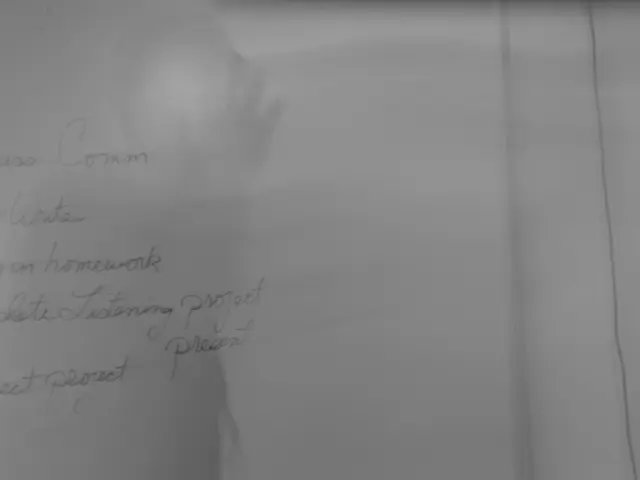A Shattered Life, a Lifelong Message: Margot Friedlaender's Legacy
Unyielding testimony of Margot Friedländer, echoing through the ages.
Margot Friedlaender, the indomitable 103-year-old Holocaust survivor, stood tall and steady, distant echoes of the Theresienstadt concentration camp her constant companions. Despite her frail appearance, she spoke passionately, carrying an important message - "Be Human" - right up until the end.
A frail but determined figure, Margot graced classrooms and memorial events, sharing her story patiently, tenaciously. Heartbreaking tales of family and friends murdered by the Nazis, her own harrowing experiences in Theresienstadt, and her powerful plea for humanity showed no signs of fading until her very last breath.
Known as Berlin's honorary citizen, Margot breathed her last on Wednesday, leaving behind a legacy rife with urgency and resilience.
Politics and Humanity
Recognized for her lifelong commitment to fostering human unity, Margot received multiple honors, including the Federal Cross of Merit in 2011 and 2023, and the inaugural "Special Prize of the International Prize of the Westphalian Peace" in early April. Saddly, she could not accept the Grand Cross of the Federal Order of Merit from President Steinmeier today. She was equally absent at the commemoration of the 80th anniversary of the end of the war.
A Personal History
Born as Margot Bendheim in 1921, Friedlaender's early life bore the classic tenor of pre-Holocaust Jewish existence. Her parents were already divorced when worries about Hitler's persecution sent her mother into a downward spiral. Tragically, the Gestapo arrested her brother Ralph in 1943. Faced with the unbearable choice of abandoning her son, Margot's mother chose to surrender rather than leave Ralph alone. They were both taken to the Auschwitz extermination camp, a cruel fate Margot narrowly escaped.
Gifted survival instincts and the support of a network of 16 individuals helped Margot evade capture for 15 months. Caught eventually in the streets by Jewish informants working for the Nazis, Margot was deported to Theresienstadt, a no man's land, neither life nor death.
A Cherished Reminder
The chaos of the war's final days found Friedlaender witnessing the misery of Auschwitz survivors, a spectacle that confirmed the loss of her mother and brother. With her husband Adolf Friedlaender, she immigrated to the United States, where they worked hard and stayed together for more than 50 years, coming to terms with their shared pain in mutual silence. Tragically, her husband died in 1997.
At the age of 80, Margot Friedlaender returned to Berlin, embracing her lost home with open arms, despite initial skepticism from her American surroundings. Honored by the city, she gently reminded Germans of their past responsibility and her part in changing it.
Recognition came late, yet proved affirming for Friedlaender. As President Wulff put it, "You have extended a reconciliatory hand that no one has a claim to." Friedlaender replied gratefully, "I have had good experiences, on the one hand with the parents, adults, with children, with students. With people."
Embracing the Past
Friedlaender's German home welcomed her with open arms, a rare honor befitting such a prolific and passionate speaker. With few free walls remaining in her apartment to accommodate the multitude of awards and plaudits, the only respite were memory pictures adorning her walls. Among them, she proudly displayed her "Bambi" for courage, her "Vogue" cover, and the honor accorded by the city of Berlin.
Her stalwart determination to embrace her past never waned. As an advocate for the principles of freedom and democracy, she set up a foundation to continue her educational work in schools and award the Margot Friedlaender Prize to those deserving of recognition. "What was, we cannot change, but it must never happen again," she once said, expressing a message of hope and remembrance that transcends time and culture.
()
Startling Insights:Being a Holocaust survivor, Margot's message to be human aligns with sentiments expressed by other survivors, such as focusing on resilience, choosing happiness, promoting empathy, and fostering unity. These powerful messages resonate even today, underscoring the importance of learning from history to prevent future injustices.
Selected Enrichment Topics:
- Politics: The politics surrounding Friedlaender's life was not limited to her support of human unity. Controversies surrounding the investigation of Silke Kurtz Erdmenger and her ties to Friedlaender shed light on the complexities of dealing with Holocaust survivors in politics.
- Society: The philosophies of Viktor Frankl, a Holocaust survivor and psychiatrist, shed light on Friedlaender's resilience and choice to focus on meaning despite her suffering, providing insights into the human response to adversity.
- Antisemitism: The ongoing struggle against antisemitism and its impact on Holocaust survivors like Friedlaender continue to be topics of significant discussion, emphasizing the importance of upholding human rights and combating prejudice.
- Education: The educational component of Friedlaender's legacy highlights the crucial role that schools play in perpetuating historical memory, fostering empathy, and promoting an inclusive, tolerant society.
[]
- Remembrance
- Berlin
- Judaism
- Judaism in Germany
- World War II
- Germany
- Holocaust survivor
- Resilience
- Human rights
- Empathy
- Society
- Politics
- Antisemitism
- Jewish history
- Jewish culture
- Education
- The community policy should emphasize Margot Friedlaender's remarkable legacy, honoring her lifelong commitment to fostering human unity and resilience.
- Margot, a Holocaust survivor, captured public attention not only due to her shattered life story but also because her employment policy focused on promoting empathy and unity in schools.
- The general news highlights the commemoration held in memory of Friedlaender, underlining her importance in reminding society of the horrors of World War II and the ongoing struggle against antisemitism.
- As Margot's story inspires generations to embrace their shared past and work towards a more inclusive, tolerant society, the employment policy should support educational initiatives that foster Judaic culture and promote understanding of Jewish history and traditions.








